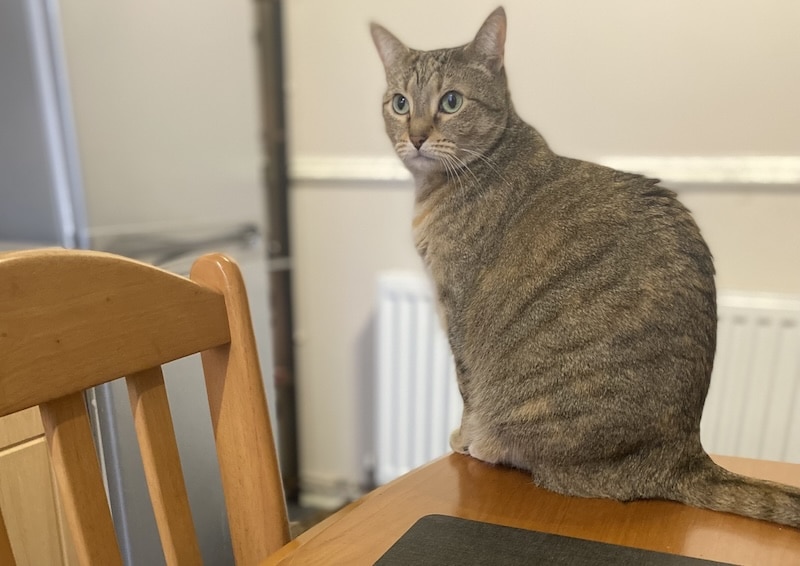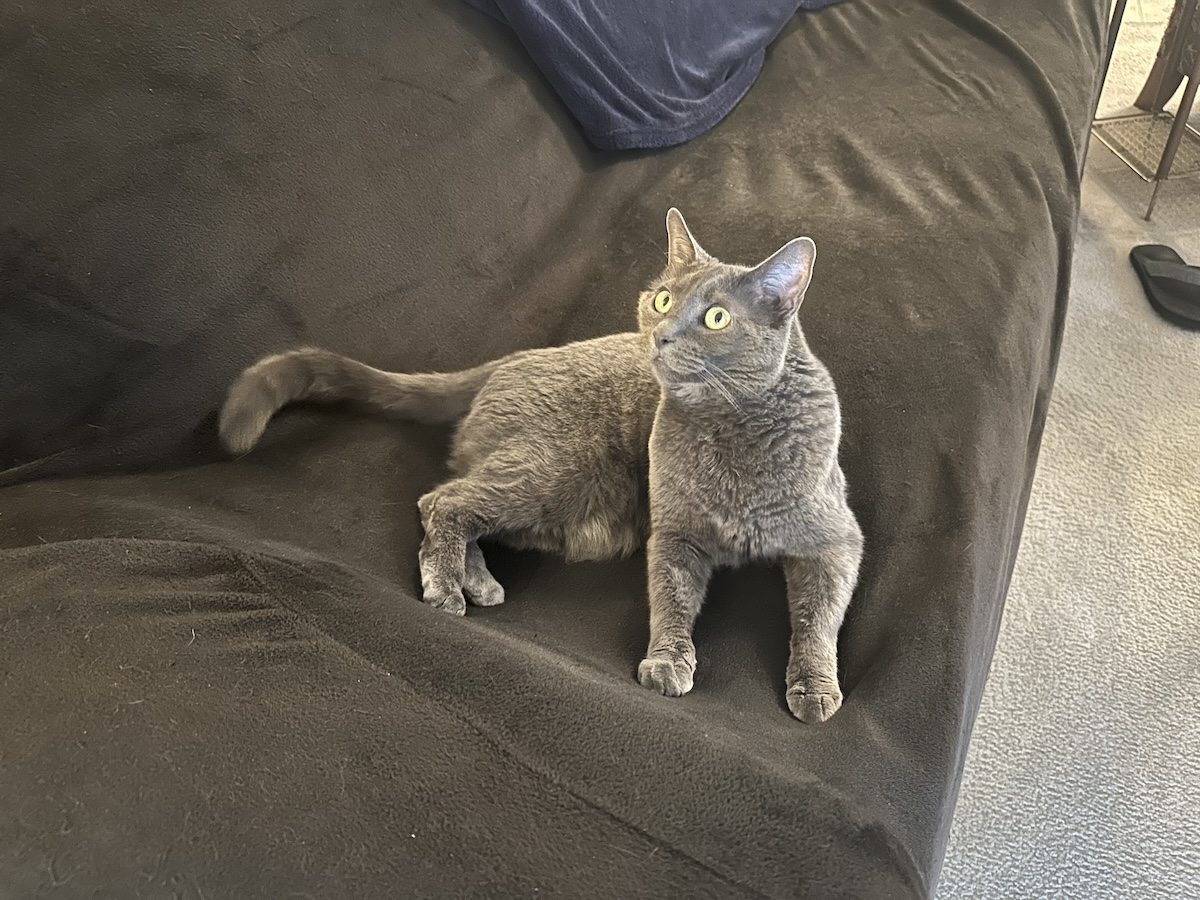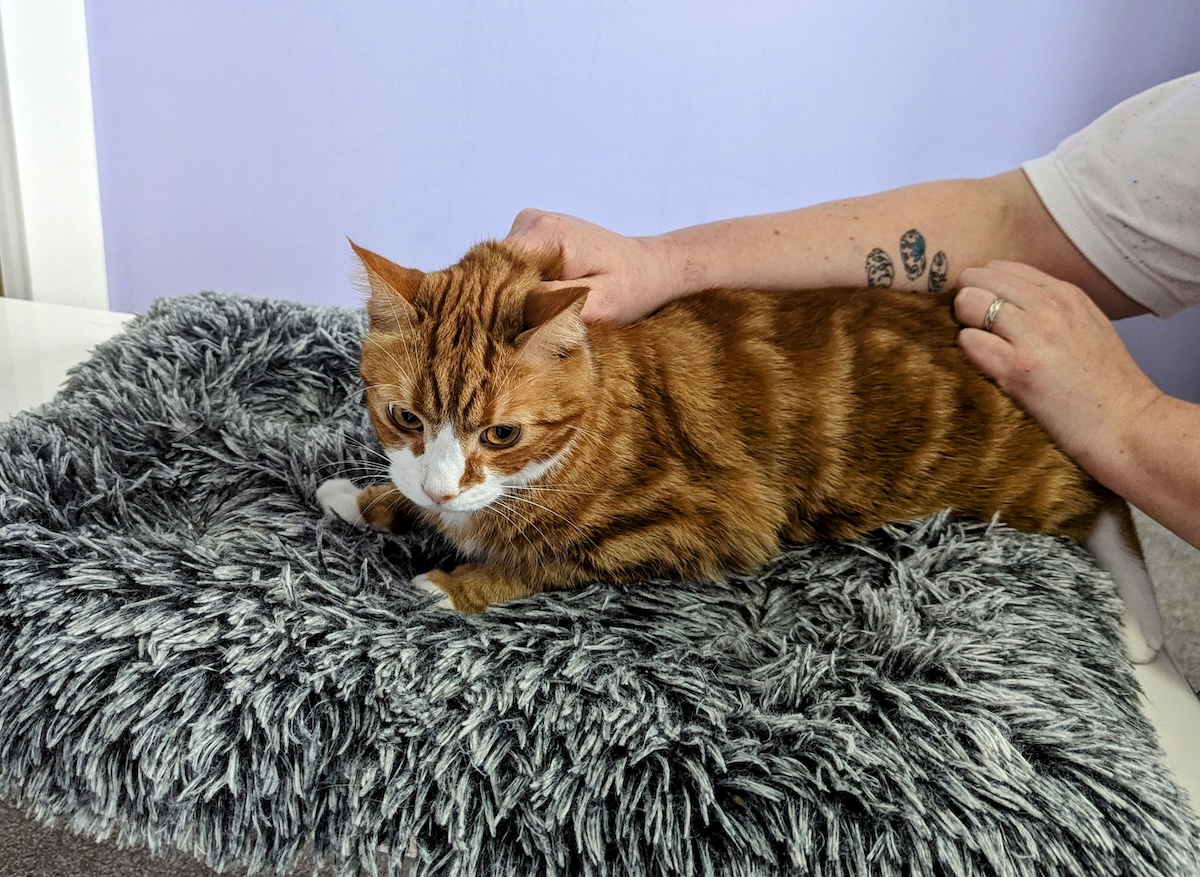Hi, I’m Dr. Lauren! Read my introduction to learn more about me and my two adventurous cats, Pancake and Tiller.
Do you have a Kelly Slater at home? A feline Kelly Slater?
Cats on counters. It’s such a common occurrence in the feline world that it’s even garnered its own term: counter surfing. And it’s apparently so appealing, that even some dogs are joining in on the fun…
If you own a cat, counter-surfing is often all too common. Cats, after all, are still considered recently domesticated, and retain many of their natural instincts. These instincts include retreating to different heights for sleeping and playing, which can provide a sense of security, while also allowing a better vantage point, and increasing active behaviors.
Studies on preference for scratching posts show that cats prefer vertical posts to horizontal scratch pads.1 And current trends in environmental enrichment promote vertical spaces, as they effectively increase a cat’s territory, especially within limited spaces, such as for pet cats that are housed predominantly indoors.2 This can include elevated beds, shelves, ropes, cat trees, and climbing poles.
But, such feline behavior isn’t necessarily congruent with our modern lifestyles, when it comes to co-existing. For instance, neither of my cats is allowed on the kitchen counters or kitchen table, which emanates from early training when they were kittens. (It truly took me a week and a lot of coaxing to get a photo of Tiller on the table specifically for this article- possibly why she looks so annoyed!) So, what’s the deal on why it’s not advisable, and where is the happy medium?
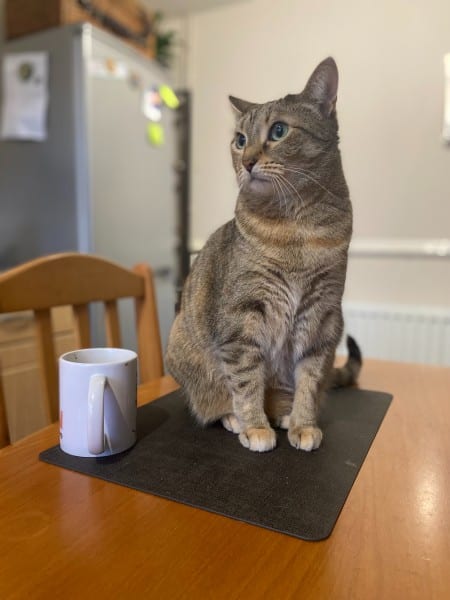

Counter Surfing: Why Not?
I’m personally a strong believer that (1) cats will be cats and you can’t change their inherent nature; (2) regardless, cats should not put their feet anywhere I don’t put mine; (3) cats definitely should not put their butt where I wouldn’t put my feet (e.g. my breakfast toast).
It may sound pedantic, but as much as I love cats, I don’t want ANYONE’s butt on my breakfast toast. And, there are zoonotic risks. Zoonoses are diseases that people can catch from animals, just as reverse zoonoses are diseases that animals can catch from people.
For humans, parasitic diseases such as tapeworms, cryptosporidium, and salmonella are all potential concerns from things tracked onto the counter from well-intentioned cats. True, counter surfing is not a well-known form of zoonotic transmission. But the risks don’t end there.
Cats, themselves, are at risk of dangers on countertops. Hot stoves, that curious cats step on, can lead to severe paw pad burns, with subsequent ulcerations and significant pain. I see it at least a few times a year, when working in clinics. Cats jump onto a stove, burn two or four feet, and are in pain for a few weeks, afterwards, requiring treatment. Similarly candles on counters often attract heat-seeking felines, and lead to melted whiskers, hair, or even burns. If it’s a cooking surface, sharp items like knives and breakables like glasses can also be unsafe for curious kitties.
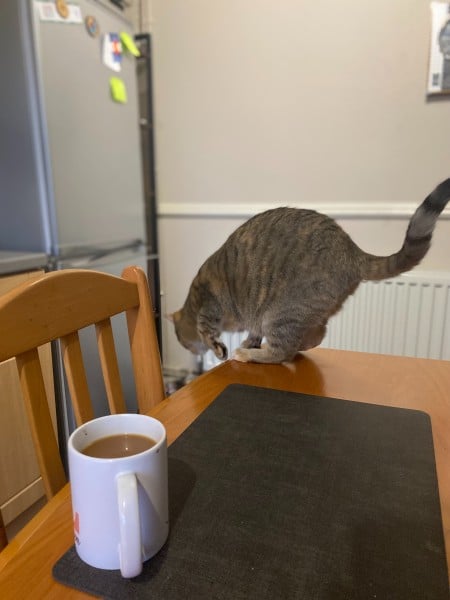

Alternative Ways for Cats to Hang Ten
So how do you keep a cat off a counter? Or stop them from Kelly Slater-ing?
Tips to keep cats off the counter:
- Start young! Don’t wait until your cat is an adult to enforce cat-free areas, and give them alternative places to replace what they seek. Kittens are most pliable for learning boundaries and good (and bad!) habits, especially before 1 year of age
- Teach your cat the “No” command and be consistent with it
- Add vertical spaces to your house: cat shelves, cat trees, cardboard towers
- Noise aversion techniques DON’T work on cats (e.g. clapping, key shaking, coins in a tin can)
- Squirting water is also a behavioral no-no!
- I’ve personally found smells to be a good deterrent: spicy items wafted under the nose of a wayward cat (e.g. chilli flakes, or Frank’s Red Hot) immediately after they jump up can help enforce a no-go zone
- Substrates (such as tinfoil or double-sided tape) can also deter some cats from stepping onto places they aren’t welcome
- Give them their own dedicated outdoor viewing space to enrich their environment: a window suction bed, chair by a window, etc. Many counter surfers are simply interested in a better vantage point- not so much the counter itself!
- Adding vertical shelves or cat trees for active play and jumping behaviors, to replace jumping onto a table or countertop
- Don’t leave tasty food items out on the counter, which can encourage curious cats to investigate
So, it’s entirely possible to hang out with your cat, while providing them with alternatives to “hanging ten”. Tiller and Pancake are living proof! Even though those toe beans are adorable, they belong anywhere but the table or countertop!
- Read her previous article: Do Cats Dream? Let’s Ask Pancake
- Read her next article: A Cat Owner’s Manual for Pain Part 1: Recognizing Pain

